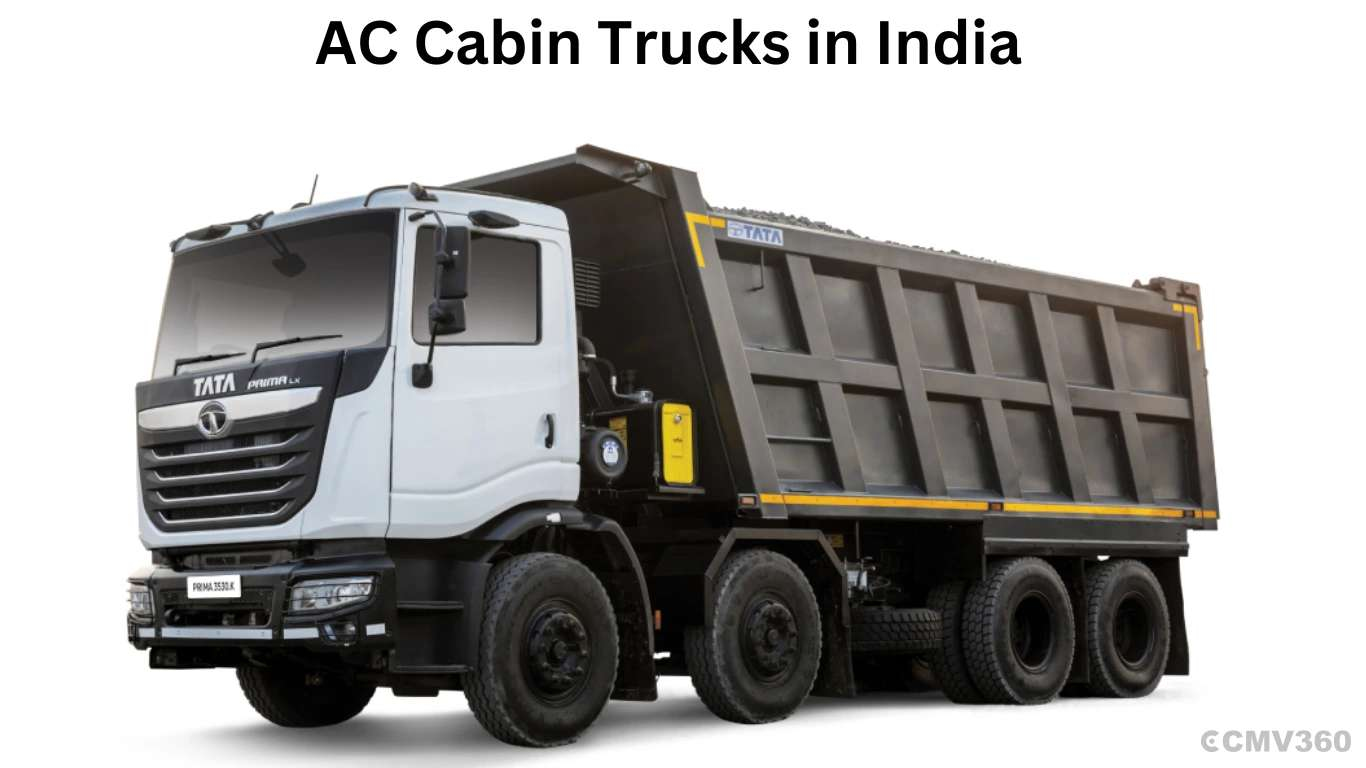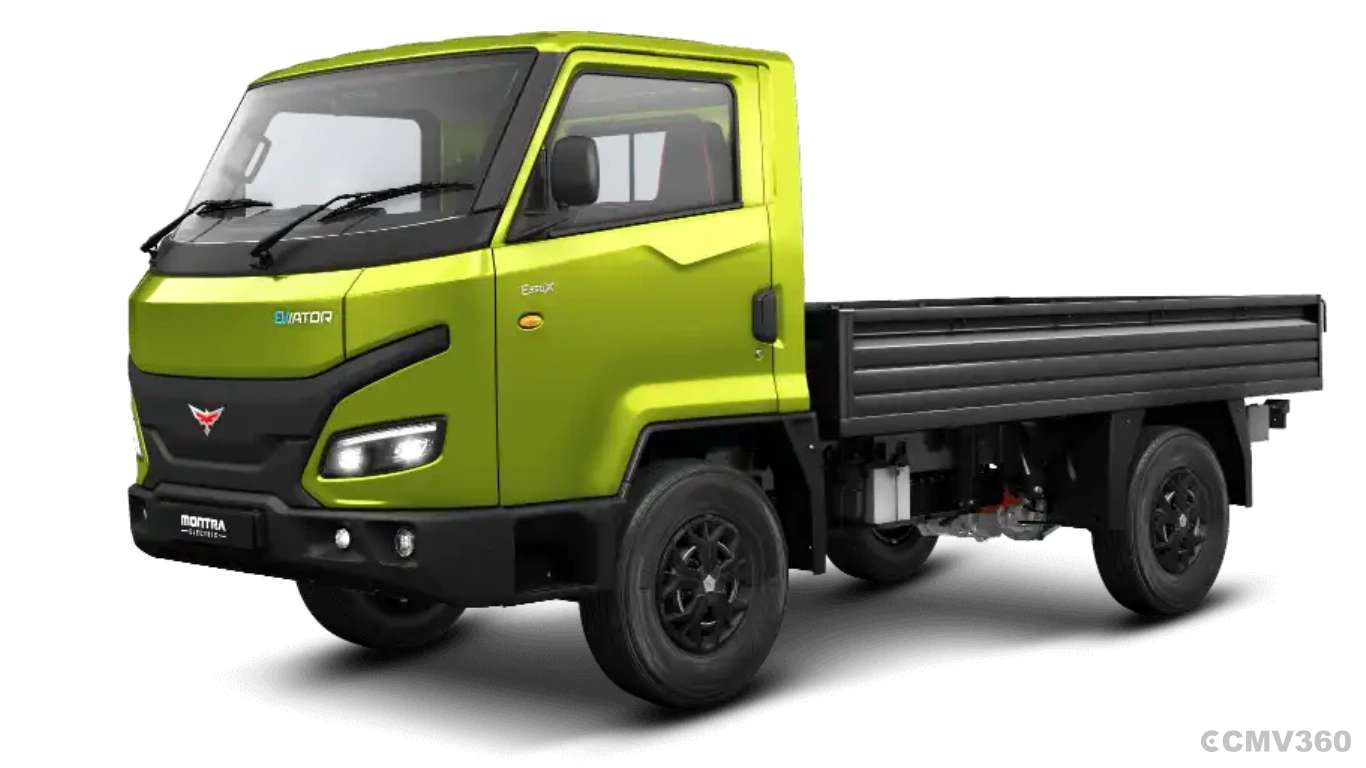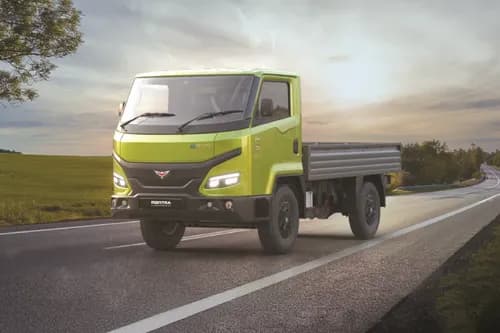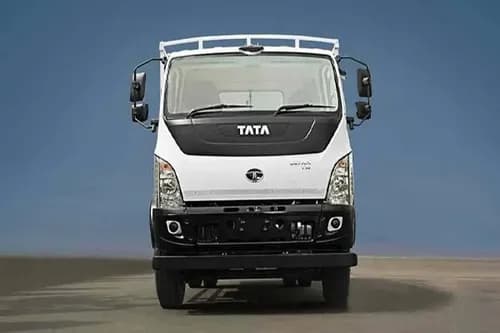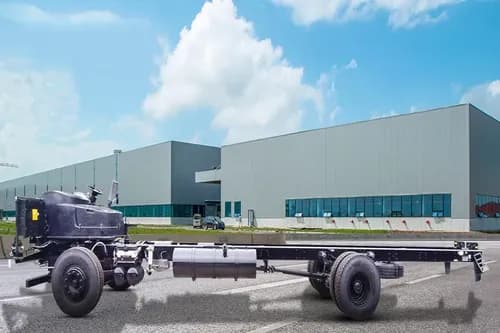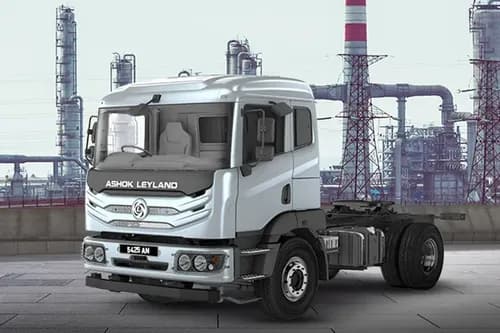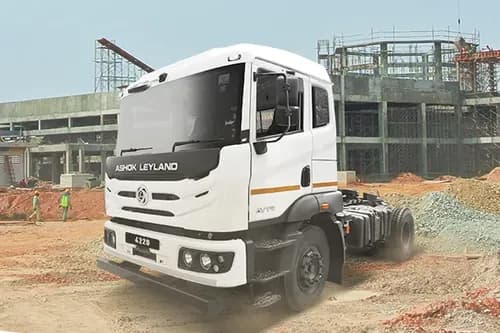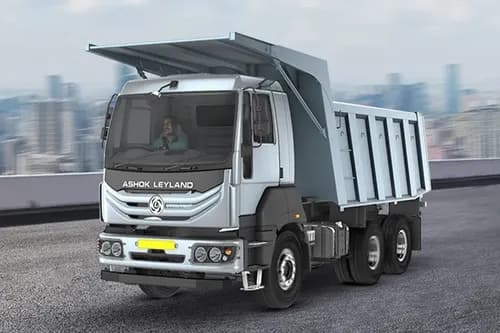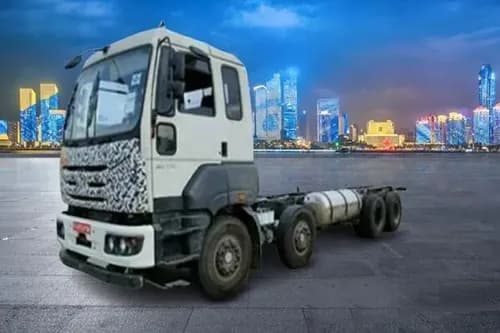Ad
Ad
Electric vs. Hydrogen Commercial Vehicles: Which Fuel is Best for the Future?
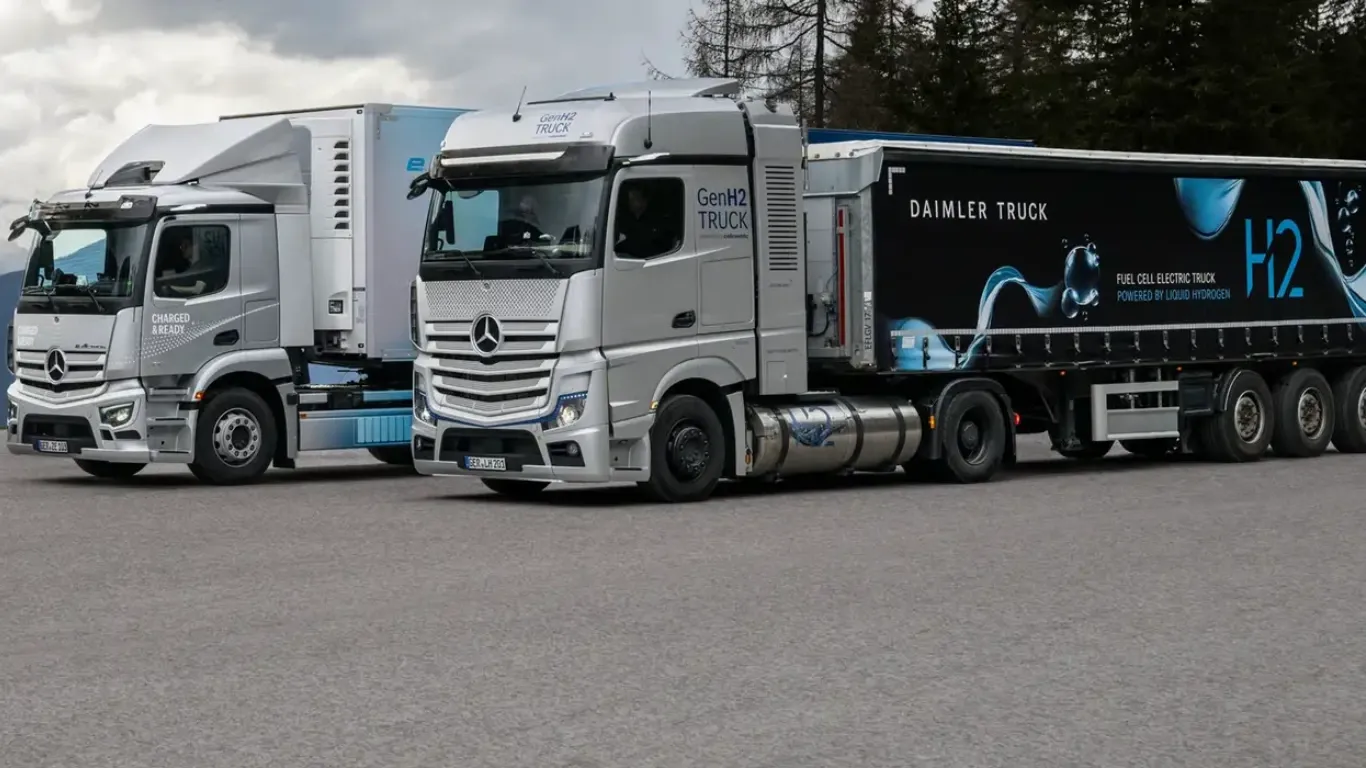
India’s commercial vehicle (CV) industry has seen big changes in the past decade. It started with lead-acid battery three-wheelers and now includes high-capacity electric buses. India is one of the largest markets for trucks and buses. However, it is cost-sensitive and slow to adopt new technologies. This makes it harder for new trends like electrification and hydrogen to grow quickly.
Electric Commercial Vehicles in India
Despite challenges, India has achieved a lot in electric mobility for commercial vehicles. City buses and last-mile delivery are leading this change. These segments helped commercial EV sales grow by 169% last year. State transport undertakings (STUs) in many cities now prefer electric buses over CNG buses. This shift shows the growing demand for cleaner transportation options.
Electrification in Last-Mile Delivery
Last-mile delivery is quickly switching to electric vehicles. E-commerce and urban buyers are driving this trend. Electric three-wheelers and scooters for carrying goods are becoming popular. Battery-powered mini trucks are also entering the market. Tata Motors’ Ace EV is leading this segment, followed by brands like OSM, Switch Mobility, EKA Mobility, and Eicher.
The transition to sustainable transportation has become a critical focus in the fight against climate change. While electric vehicles (EVs) have gained considerable attention in recent years, hydrogen energy is reemerging as a viable alternative.
Both options have the potential to reshape the transportation industry and reduce emissions, but they come with unique challenges and opportunities. This article explores the advancements, applications, and future prospects of electric and hydrogen vehicles.
Electric Vehicles: A Rapidly Evolving Industry
Electric vehicles are becoming more practical for everyday use. Advances in battery technology have extended the range of EVs, making them more suitable for long-distance travel. Additionally, the cost of EVs has gradually decreased, making them more accessible to a wider audience.
Expanding Charging Infrastructure
One of the most significant developments in the EV market is the rapid growth of charging networks. Governments and private companies are investing heavily in setting up charging stations, reducing range anxiety for EV owners. While there is still work to be done, the progress is encouraging.
Urban Mobility with E-Bikes and Scooters
Three-wheelers, E-bikes and small electric scooters have emerged as efficient urban transportation solutions. They are cost-effective and environmentally friendly but often struggle with hilly terrains. Innovations in torque delivery systems could make e-bikes more versatile, potentially revolutionizing short-distance travel in cities.
Ever-Improving Battery Technology
Battery innovation is at the heart of the EV revolution. Research into solid-state batteries and alternative materials is reducing the size and weight of battery packs while increasing their capacity. These advancements are expected to lower costs and enhance the efficiency of EVs.
With fewer moving parts than internal combustion engine (ICE) vehicles, EVs are inherently simpler and easier to maintain. Combined with renewable energy sources powering the grid, EVs represent a easy solution to reducing emissions in personal transportation.
Best Electric Trucks in India
Heavy-Duty Top Electric Trucks in India
- IPLTech Electric Rhino 5536e
- Ashok Leyland Boss 14 HB EV
- Olectra Meghaetron Electric Tipper
- Tata Prima E.28K
Medium-Duty Electric Trucks in India
- Ashok Leyland Boss 1219 EV Truck
- Ashok Leyland Boss 1218 HB EV
Top Mini Electric Trucks in India
Also Read: Top 3 Truck Brands in India to Choose This New Year 2025!
Hydrogen Commercial Vehicles in India
Hydrogen engine technology is one of the most advanced developments in the commercial vehicle (CV) sector in recent times. This technology uses hydrogen as a fuel for modified internal combustion engines (ICE).
It has great potential to replace fossil fuels and reduce carbon emissions in heavy-duty vehicles, where battery-electric and hydrogen fuel cell technologies might not be practical. At the Auto Expo 2023, Indian CV manufacturers Tata Motors and Ashok Leyland revealed their versions of hydrogen-powered engines for heavy trucks. Engine supplier Cummins also introduced a ‘fuel-agnostic’ platform that can run on hydrogen.
For CV manufacturers, hydrogen ICE technology offers several benefits and brings them closer to zero emissions in a short time. One major advantage is that these engines are similar to CNG engines, which are already mass-produced in India. The main difference is in the modified engine heads, fuel ignition systems, and control electronics.
The core engine block, transmission, and other parts remain the same. This makes it easier for manufacturers to shift from diesel without needing major changes in their products or supply chains. The low cost of transitioning to this new technology also encourages fleet operators to adopt it.
Additionally, trucks and buses contribute a large amount of carbon emissions on Indian roads. Since hydrogen does not contain carbon, hydrogen combustion engines do not produce harmful carbon-based emissions like carbon monoxide, hydrocarbons, or carbon dioxide.
While hydrogen engines still emit nitrogen oxides (NOx), they are much cleaner than diesel engines. This technology plays an important role in India’s efforts to reduce pollution from heavy vehicles and lays the groundwork for a full transition to electric and hydrogen fuel-cell vehicles in the future.
As the country invests more in clean, emission-free hydrogen, experts predict that the heavy transport sector will be one of the early users of locally produced hydrogen. This means hydrogen engine technology will likely grow stronger in the coming years, with more hydrogen-powered heavy vehicles becoming available for consumers.
Heavy Industries and Large Vehicles
Hydrogen excels in applications where EVs struggle, particularly in heavy industries like shipping, construction, and aviation. Hydrogen fuel cells provide the energy density required for large-scale operations, making them ideal for heavy-duty vehicles and machinery.
Range and Refueling Advantages
Hydrogen vehicles offer longer ranges compared to most EVs and can be refueled quickly, similar to traditional gasoline vehicles. This makes them more convenient for long-haul transportation and commercial applications.
ICE Conversions and the Future of Tuning
Hydrogen has the potential to give a new lease of life to internal combustion engines. Companies like Tata Motors and Ashok Leyland are experimenting with hydrogen-powered ICEs. This approach could also help transition existing vehicle fleets to cleaner energy.
Practical Transition for Logistics
Hydrogen's versatility makes it a practical solution for logistics and transportation networks. Autonomous hydrogen-powered trucks and drones are being developed to handle long-distance freight, showcasing hydrogen's potential in commercial sectors.
Best Hydrogen trucks in India
- Ashok Leyland 4125 HN
- Tata Prima E.55S
- Eicher Pro 3015 Fuel Cell Truck
- Tata Prima H.55S
Major Challenges for Electric and Hydrogen Vehicles
For Electric Vehicles
Battery Recycling: The environmental impact of mining materials like lithium and cobalt is a growing concern. Developing efficient recycling methods is essential to make EVs more sustainable.
Infrastructure: Although progress has been made, charging networks still need expansion, especially in rural areas.
For Hydrogen Vehicles
Storage and Distribution: Hydrogen is highly volatile and requires advanced storage solutions. These challenges must be addressed to scale up hydrogen infrastructure.
Cost: Producing and storing hydrogen remains expensive compared to other fuels. Investments in technology are required to bring costs down.
Comparing Applications: Where Each Excels
Electric Vehicles for Personal Use
EVs are well-suited for personal transportation, particularly in urban areas. Their lower running costs, quiet operation, and high performance make them an attractive option for everyday users.
Hydrogen for Heavy Industries
Hydrogen vehicles shine in heavy-duty applications. They provide the power and range necessary for industries like shipping, construction, and aviation, where battery-powered solutions may not be practical.
Electric vs. Hydrogen
Electric Vehicles: The Long-Term Vision
Electric vehicles are positioned to dominate personal transportation markets due to their efficiency, simplicity, and alignment with renewable energy goals. The transition to a fully electric future depends on further advances in battery technology and the development of a robust charging network.
Hydrogen Vehicles: A Complementary Role
Hydrogen is unlikely to replace electric vehicles but will play a complementary role. Its advantages in heavy-duty sectors and long-range applications make it indispensable in achieving a balanced and sustainable transportation ecosystem.
Also Read: How Proper Load Balancing Can Improve Your Truck’s Tyre Life
CMV360 Says
Electric vehicles are ideal for urban and personal use, offering affordability, low maintenance, and compatibility with renewable energy. Hydrogen vehicles excel in heavy-duty sectors like shipping and logistics, where quick refueling and high energy density are vital. Both technologies are crucial, with EVs leading urban mobility and hydrogen supporting industrial needs for a balanced transportation future.
Features & Articles
Summer Truck Maintenance Guide in India
This article provides a simple and easy-to-follow summer truck maintenance guide for Indian roads. These tips ensure that your truck remains reliable and efficient during...
04-Apr-25 01:18 PM
Read Full NewsAC Cabin Trucks in India 2025: Merits, Demerits, and Top 5 Models Explained
From 1st October 2025, all new medium and heavy trucks must have air-conditioned (AC) cabins. In this article, we will discuss why every truck should have an AC cabin, it...
25-Mar-25 07:19 AM
Read Full NewsBenefits of Buying Montra Eviator In India
Discover the benefits of buying the Montra Eviator electric LCV in India. With best performance, long range, and advanced features, it's perfect for city transport and la...
17-Mar-25 07:00 AM
Read Full NewsTop 10 Truck Spare Parts Every Owner Should Know
In this article, we discussed the top 10 important truck spare parts every owner should know to keep their truck running smoothly. ...
13-Mar-25 09:52 AM
Read Full NewsTop 5 Maintenance Tips for Buses in India 2025
Operating a bus in India or managing a fleet for your company? Discover the top 5 maintenance tips for buses in India to keep them in top condition, reducing downtime, an...
10-Mar-25 12:18 PM
Read Full NewsHow to Improve Electric Truck Battery Range: Tips & Tricks
In this article, we will explore several tips and tricks to improve the battery range of electric trucks in India....
05-Mar-25 10:37 AM
Read Full NewsAd
Ad
Registered Office Address
Delente Technologies Pvt. Ltd.
M3M Cosmopolitan, 12th Cosmopolitan,
Golf Course Ext Rd, Sector 66, Gurugram, Haryana
pincode - 122002
Join CMV360
Receive pricing updates, buying tips & more!
Follow Us
COMMERCIAL VEHICLE BUYING BECOMES EASY AT CMV360
CMV360 - is a leading commercial vehicle marketplace. We helps consumers to Buy, Finance, Insure and Service their commercial vehicles.
We bring great transparency on pricing, information and comparison of tractors, trucks, buses and three wheelers.

